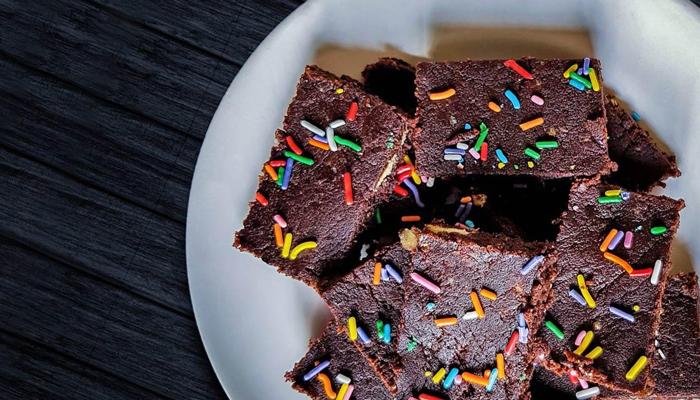Curious about late-night snacking? Explore if it truly affects your health & weight. Dive into the science behind it
For generations, our grandmothers have warned us: “Beta, don’t eat late! It will make
you fat!” But in today’s fast-paced India, with late work hours, social gatherings that stretch into the night, and the sheer convenience of food delivery apps, that advice can be difficult to follow.

So, is there really any truth to the claim that eating late at night is bad for you? Let's dive into the research and find out what the science actually says.
Eating habits impact weight and health, not just timing
The simple answer: it’s complicated. It’s not just about when you eat, but what you eat and how much you eat that truly matters.

Many studies suggest that regularly consuming large meals loaded with processed foods and sugary drinks, irrespective of the time, will most likely result in weight gain and other health problems.
These kind of foods have lot of calories and fewer nutrients, so they are not as filling as foods with fiber or protein. If you eat quickly late at night, it might prevent you from feeling satisfied, therefore, you may consume additional calories.
Eating late affects metabolism and sleep, leading to weight gain
Now, let’s consider the science behind the claims about late-night eating. Our bodies operate on a natural 24-hour cycle called the circadian rhythm. This internal clock regulates various bodily functions, including sleep, hormone release, and metabolism.

Some research suggests that our metabolism may not be as efficient at night. During the day, our bodies are primed for activity and burning calories. But as evening approaches, our metabolism naturally slows down in preparation for sleep and rest.
That means, if you are eating a very large portion of rich food late at night, your body might have a even harder time processing all the calories – potentially leading to weight gain. On top of that, late-night eating can also disrupt the sleep-wake cycle.
Eating a large meal before bed can cause indigestion, bloating, and heartburn, making it difficult to fall asleep or stay asleep peacefully.
Effect of late-night eating depends on lifestyle, meal choices, and activity levels
However, it's important to note that the effect of late-night eating likely depends on the individual and their lifestyle. For example, people who work night shifts may have a naturally shifted circadian rhythm, and their bodies may be more adapted to processing food at night.
The type of food we eat at night makes a big difference. Instead of eating that pack of biscuits, opt any fruit or some peanuts. Additionally, if you are following the proper sleep timings and eating food even late but right before sleep can disrupt your sleep cycle.
The amount of physical activity you do throughout the day also plays a role. If you have an active lifestyle and burn a lot of calories during the day, your body may be better equipped to handle a late-night snack.
Similarly, eating balanced meals throughout the day prevents you from being starving late at night. So you can then eat a healthy snack or a light meal. You can also change meal timings, and space them out evenly, so you don't feel the need to eat late.
Choose healthy late-night snacks like yogurt, nuts, fruits, and herbal tea to curb hunger
So, what are some healthy options for those late-night hunger pangs? Instead of reaching for heavily processed food, choose healthier alternatives. A small bowl of plain yoghurt can provide a dose of protein and help you feel full.

A handful of almonds or other nuts can also be a satisfying and nutrient-rich option. Fruits, like apple slices or banana, are naturally sweet and can help curb cravings. If you are really craving something warm, a cup of herbal tea can be a soothing and calorie-free choice.
The key is to focus on consuming smaller portions of healthy, whole foods that won't overload your system before bed. Remember to drink water throughout the day is also very important so you don't confuse dehydration with hunger.
Tips to manage late-night eating: eat regular meals, focus on protein/fiber, plan meals, avoid distractions, stay hydrated, manage stress
Now, let’s get into some practical tips to manage late-night eating. First, ensure you are eating regular meals throughout the day. This will help to prevent extreme hunger and cravings later in the evening.

Focus on incorporating protein and fibre into your meals, as these nutrients can help you feel full and satisfied for longer. Plan your meals for the week ahead. Knowing what you're going to eat can make it easier to avoid unhealthy temptations.
Make it a habit not to eat in front of the TV or while using your phone. Mindless eating can lead to calorie overload without noticing it. Also, stay hydrated throughout the day. Sometimes, people confuse thirst with hunger.
If you feel hungry late at night, try drinking a glass of water first to see if that satisfies you. Manage stress levels as stress can often lead to emotional that leads to overeating and unhealthy food choices.
Late-night eating impact depends on diet, not just timing; choose wisely
In conclusion, the effect of eating late at night is not as straightforward as it seems. It's more about the overall dietary pattern, the types of food consumed, and individual lifestyle factors. Simply avoiding eating after a certain time is not a guaranteed path to weight loss or better health.

Eating nutritious, balanced meals throughout the day, managing portion sizes, and choosing healthy late-night snacks is what makes more sense.
So, next time you find yourself reaching for a snack late at night, remember to listen to your body, make mindful choices, and enjoy your food without guilt. Remember, it’s not the clock that matters as much as what you put on your plate.
AI Generated Content. Glance/InMobi shall have no liability for the content

















